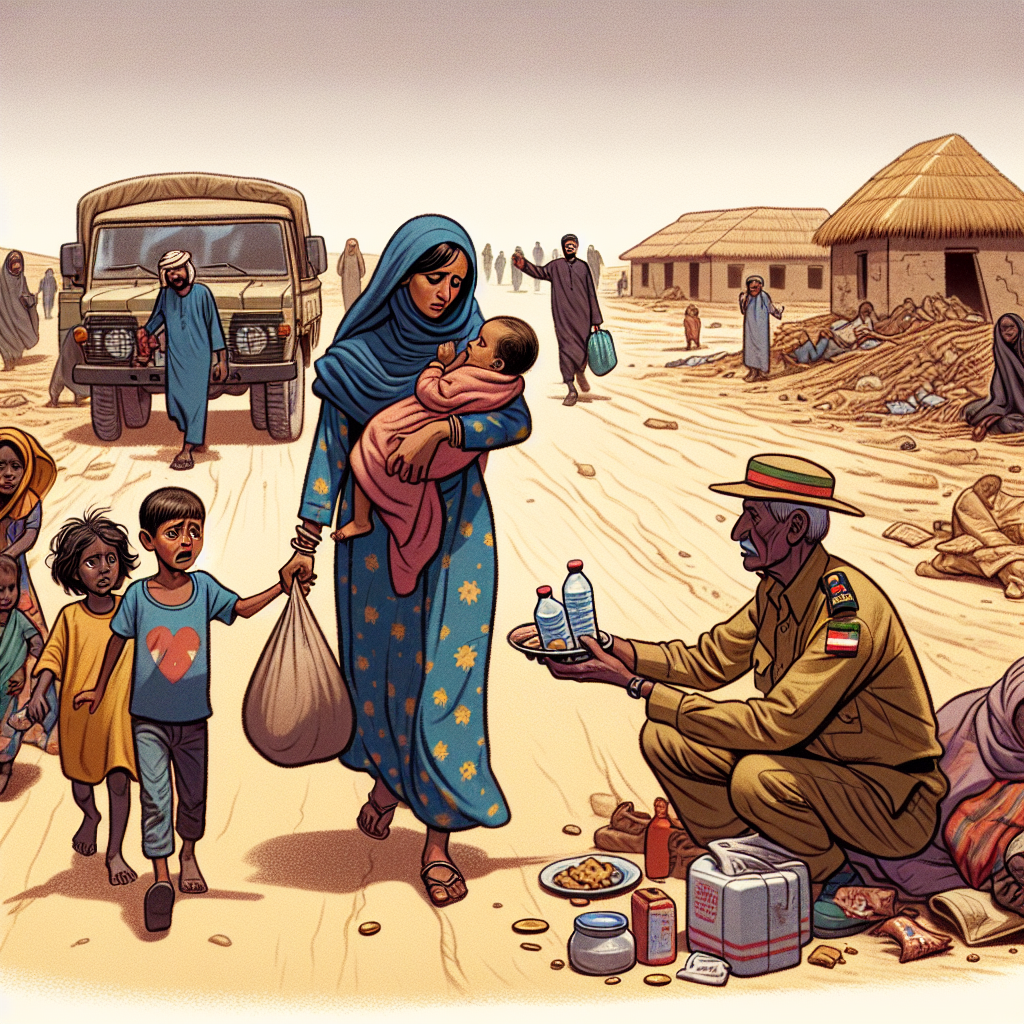The humanitarian crisis in Sudan has reached a critical point, with millions in desperate need of assistance as conflict intensifies. The ongoing violence has driven over 11 million people from their homes, both within Sudan and across borders, leaving millions more in extreme vulnerability. This crisis is marked by the collapse of essential services, and a looming threat of famine, particularly affecting children. Despite international efforts, the scope and severity of needs have overwhelmed aid responses, prompting urgent calls for greater support and protection for the people of Sudan.
Widespread Food Insecurity and Health Emergency
An estimated 13 million people in Sudan now face acute food insecurity, with fourteen regions on the brink of famine. Conditions in Zamzam camp in North Darfur have already crossed into famine territory, intensifying the dire need for emergency food aid. The situation is especially devastating for Sudan’s youngest population, as 3.7 million children under five are projected to suffer from severe acute malnutrition this year. Without immediate intervention, these children face an 11-fold higher risk of death from preventable diseases due to weakened immunity from hunger. The UN warns that these children require life-saving treatment, which must be delivered swiftly to avert catastrophic loss of life.
Barriers to Aid Access and Logistical Challenges
A major obstacle in the delivery of aid has been securing safe and unrestricted access to all regions in Sudan. UN agencies and partners are hindered by administrative delays and the need for Government permissions, which prevent sustained access to affected communities. The re-establishment of critical UN offices in Zalingei, Central Darfur, and Kadugli, South Kordofan is essential, along with simplified approval processes for aid shipments, personnel, and cross-line access.
While the Government of Sudan and neighboring Chad have expressed commitments to support aid delivery, practical implementation of these promises is critical. Bureaucratic and logistical delays, especially for food, health, and nutrition supplies, risk leaving communities without vital assistance. The UN urges Sudan’s authorities to facilitate swift, burden-free access for humanitarian partners to ensure timely support for those in need.
Displacement Crisis and Refugee Assistance
Sudan’s displacement crisis is one of the world’s most severe, with more than 10 million people internally displaced and 800,000 refugees hosted within its borders. Families forced to flee endure extreme hardship in makeshift camps lacking basic services and adequate protection. Both internally displaced persons (IDPs) and refugees in areas like Port Sudan and Kassala face increased vulnerability to exploitation, and many require ongoing legal protection and assistance.
The UN is collaborating with the Government of Sudan and its partners to address these needs, emphasizing the importance of strengthening cross-border operations between Sudan and Chad to facilitate the flow of aid. Refugees need continuous support, including access to legal services, to navigate their complex circumstances.
Protecting Civilians Amidst Conflict
In addition to humanitarian assistance, the UN stresses the urgency of protecting civilians from ongoing violence and rights violations. Women and children, in particular, face grave threats, including sexual and gender-based violence and exploitation. Reports of sexual violence being used as a weapon of war have underscored the dire situation and the urgent need for intervention. The UN calls on all parties involved in the conflict to respect international humanitarian law and prioritize civilian protection.
Call to Action for Sustained International Support
UNHCR, UNICEF, and their partners are working on the ground to provide shelter, clean water, healthcare, and education to Sudan’s most vulnerable communities. However, they warn that without continued and expanded international support, the humanitarian response will remain inadequate. The UN emphasizes the need for a political solution to address the underlying causes of conflict, coupled with the removal of bureaucratic and security obstacles that restrict aid access.
"The people of Sudan are enduring unimaginable suffering," a UN spokesperson stated. "This crisis demands our collective and immediate action. Humanitarian aid is essential, but it cannot end the violence. We need urgent international efforts to address the root causes of this crisis and to protect Sudan's civilians from further harm."
The situation in Sudan calls for global solidarity and swift action to save lives and support those in need. The world must respond with the urgency and scale required to address this devastating crisis.











